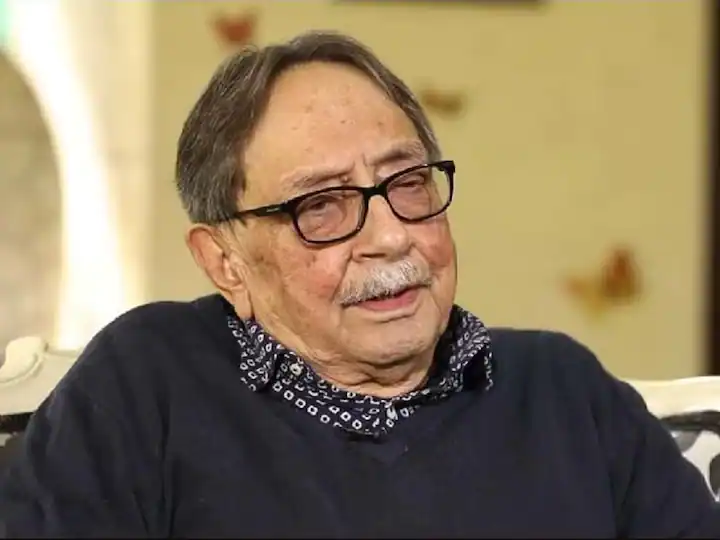Pakistan “lobby” has been on shaky grounds in Kashmir since the abrogation of Article 370, but militancy in the Valley is still very much existing and the Inter-Services Intelligence (ISI), Pakistan’s intelligence agency, also continues to operate there, according to former Indian spymaster AS Dulat.
The common Kashmiri now “does not stand” for Pakistan anymore, unlike when insurgency was at its peak there, but they want statehood back, Dulat, who has recently come out with his memoir, ‘A Life in the Shadows’, told ABP Live in an exclusive interview.
Dulat, the former chief of Research and Analysis Wing (RAW) and former special director of the Intelligence Bureau (IB), also said China has become a much crucial stakeholder today when it comes to India-Pakistan issues, and that the era of dreaded separatists like Yasin Malik, Shabir Shah and Mirwaiz Umar Farooq and all are over.
“The (government’s) muscular policy in Kashmir has worked — militancy has come down, infiltration reduced… There are no separatists now in Kashmir, they have been mainstreamed… The era of Yasin Malik, Shabir Shah, (Syed) Salahuddin is over,” said Dulat.
He added: “Pakistan lobby in Kashmir has dwindled; There aren’t so many Kashmiris now who stand for Pakistan. But they are there and quietly there. Militancy in Kashmir has not totally gone away, nor has the ISI, and that is why it is also important to engage with Pakistan and I do not see that happening.”
However, Dulat also said the abrogation of Article 370 that happened in August 2019 was “unnecessary” as it was long gone even as the Kashmiris have “reconciled” with the move.
He stressed that the Kashmiris are now waiting for the Narendra Modi government to fulfil its promise and return statehood to Kashmir, and also hold elections.
On August 5, 2019, the Modi government revoked Article 370 of the Indian Constitution, which 35A is part of. This was one of the main bases of the Kashmir policy by India after Independence.
Subsequently, on October 31, the state of Jammu and Kashmir was bifurcated into the union territories of J&K and Ladakh. While the government promised that statehood would be restored soon, nothing has happened as yet.
‘Does Not Suit Delhi To Hold Elections In Kashmir’
In November, while talking about the distribution of funds to the states by the Centre as per the recommendations of the 14th Finance Commission, Finance Minister Nirmala Sitharaman had said the state is considering restoring statehood to J&K.
The government has also hinted that it will soon hold elections in J&K.
According to Dulat, however, while the mainstream political leadership of Kashmir like former chief minister and People’s Democratic Party (PDP) leader Mehbooba Mufti and National Conference (NC) leader Omar Abdullah, who is also a former CM, believe that elections in the Valley will take place in May 2023, New Delhi is not much keen.
“We need to revive the political and democratic process in Kashmir. Today, we are not even engaging with the mainstream leadership, so there’s frustration there. The Kashmiri leadership thinks there will be elections in May 2023. My own feeling is that there will not be any elections. It doesn’t suit Delhi to have elections. The election is more likely to be in 2024,” Dulat stressed.
He added: “If there are no elections in Kashmir by May this year, it will be status quo. If you are looking at it militarily or from the point of view of law and order, I don’t think we will lose very much.”
The question here is, Dulat said, “do we want to move forward politically”. “…if there are no takers in Delhi for that or if there is no excitement of moving forward then it won’t happen. The status quo does not really suit us. When there is a solution to Kashmir why don’t we grasp it and take it forward. Actually, it stares us in the face.”
ALSO READ | G20 Not A Forum To Discuss War, Should Focus On Economy, Growth, Says Amitabh Kant
‘China, Russia More Important For India Than US’
Dulat believes China has now firmly planted its feet in South Asia, and even in the bilateral ties between India and Pakistan, unlike the time when he was at the helm of affairs in RAW or when he was former PM Atal Bihari Vajpayee’s advisor on Jammu and Kashmir.
“We need to engage with China much more seriously and consistently… It should be a dialogue that should never end. Our government says nothing happened there (at the Line of Actual Control) but certain things did happen. The Army did have some setbacks and we did suffer there. But whatever has happened on the border has happened,” Dulat said.
He added, “I don’t think either side wants a war. We certainly don’t want a war and I don’t think China wants a war. So, what is the way forward? The way forward is through diplomacy – To engage, to talk.”
He also said that the strategic community in India sees China and Pakistan as one entity.
“We look at it as the Chinese and the Pakistanis are one. They are one because you keep both out. We don’t talk to Pakistan, and we don’t sufficiently talk to China. And these are two very important neighbours – one more powerful than the other,” he said.

